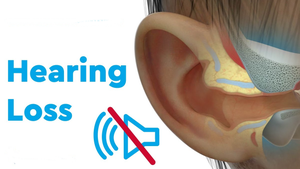Why early identification & intervention for hearing loss is necessary

New Delhi, March 3 (IANS) Timely recognition of hearing impairments is crucial, especially in young children, as it enables us to initiate interventions promptly, significantly influencing developmental trajectories, said experts here on World Hearing Day on Sunday.
World Hearing Day is observed every year on March 3 to raise awareness about hearing impairments as well to clarify societal misperceptions and stigmas.
Loss of hearing is the commonest sensory deficit in humans. The World Health Organisation (WHO) estimates that in India there are approximately 63 million people, who are suffering from Significant Auditory Impairment.
Currently there are 291 persons per one lakh population in India who suffer severe to profound hearing loss, and children up to 14 years account for a large share, according to a National Sample Survey Office(NSSO) survey.
“Early detection facilitates the implementation of targeted interventions, thereby optimising language acquisition, academic progress, and overall psychosocial development in affected children,” Dr Ravinder Gera, Senior Director and HOD - ENT, Max Hospital, Gurugram, told IANS.
On the other hand, delayed identification of hearing loss can impede speech and language development, hinder social integration, and compromise cognitive functioning, said the doctor.
“The earlier the child is diagnosed with hearing loss and rehabilitated more are the chances of keeping them at par with their peers in terms of speech and language development,” Dr Anish Gupta, Lead ENT Consultant, C K Birla Hospital, Gurugram, told IANS.
“This loss is usually sensorineural in nature and there are no medications to treat. Auditory rehabilitation either with hearing aids or cochlear implant surgery if the hearing loss is more profound should be as soon as possible to have good speech and language outcomes,” he added.
The doctors also emphasised the need for newborn screening as well as regular screening. This can empower healthcare professionals to provide comprehensive support and resources to families, equipping them with the necessary tools to navigate the challenges associated with raising a child with hearing loss effectively, the health experts noted.
“Newborns must be screened for hearing loss as a part of every hospital's protocol. Sometimes it's not feasible in small nursing homes where the facilities are not available. Then at least newborns with higher risk (eg. history of meningitis, jaundice, NICU stay, preterm babies) must be evaluated with hearing screening and confirmatory tests,” Dr Anish said.
“Early hearing screenings, administered shortly after birth, serve as the cornerstone for identifying potential auditory impairments, allowing for timely intervention. Interventions, ranging from conventional hearing aids to advanced cochlear implants, coupled with auditory-verbal therapy, aim to mitigate the impact of hearing loss and facilitate optimal communication skills development,” added Dr Ravinder.
Further, Dr Anish said that more common and often neglected and preventable hearing loss in children is due to fluid accumulation in the middle ear. This can be due to recurrent respiratory infections, allergies or adenotonsillar hypertrophy.
“Children are usually unaware and don't complain and this middle ear fluid can gradually affect the health of the eardrum and can lead to middle ear disease in the long run. This is entirely preventable if children between the age group of 3 to 7 years are routinely examined for the presence of middle ear fluid aka otitis media with effusion,” he said.
Disclaimer: This story has not been edited by the Sakshi Post team and is auto-generated from syndicated feed.




